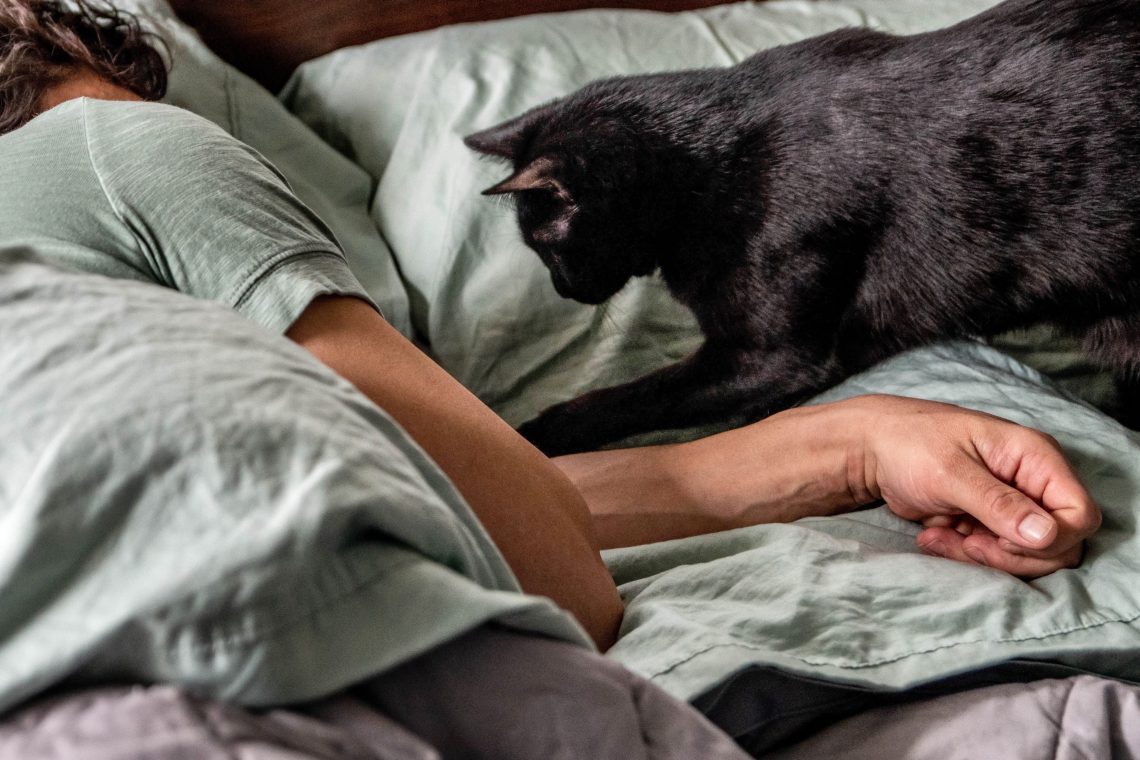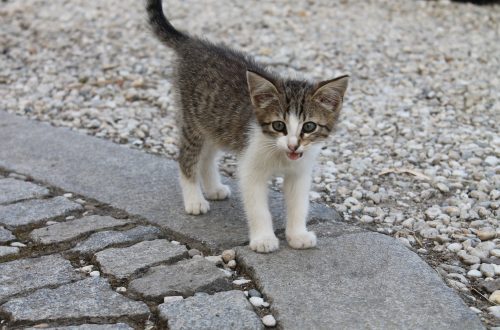
Find out why your cat won’t let you sleep at night

Cats spend up to 15 hours a day sleeping, but usually sleep during the day. When you are not at home, they prefer to spend this time relaxing, waiting for you to return. When you are finally home, they have already rested. Young animals are especially active.
The hunter instinct in cats makes the nights much more suitable for being on the lookout, scanning the corners of the house for prey. They may never have hunted effectively – domestic cats don’t need to – but it’s a primal instinct they can’t give up. Cats are anatomically designed for night hunting. Their eyes cannot see in complete darkness, but they only need one sixth of the light that the human eye needs. This physiological feature contributes to being a good hunter, and although there is no prey, and the cat is satisfied with the food, the instincts have not gone away, and the cat implements them in games.
Kittens up to a year are especially active, at night a real mess sets in in the house, especially if the kitten is not alone. Curtains, small items, slippers and socks become toys. This period usually passes by the age of one, and this is normal kitten behavior.
What can be done to change a cat’s habits?
You can try to set boundaries to keep your rhythms in sync. To prevent the cat from being so active at night, you can try offering the cat more physical activity and attention during the day and evening, leaving more toys. This should not last forever, these measures change the cat’s habits quite quickly, which will persist. It is also advisable to leave food for the cat at night, or before going to bed, play and feed it.
If the cat runs around the bed, bites and grabs the arms and legs with its claws, you can put it out of the bedroom door, and ignore the scratches on the door. After some time, the cat will calm down, and stop striving for a locked room. Don’t just stroke, play, and go feed your cat, in which case she will be rewarded for her behavior and will continue to act every night to get what she wants.
It is also worth paying attention to a possible veterinary problem. If a cat does not run at night, but wanders from corner to corner, does not find a place for itself and meows loudly, it may suffer from a problem that causes pain and discomfort. In this case, the cat should be taken to the veterinarian.
Most often, with age, cats stop running at night, or behave more calmly, adjusting to your conditions.





